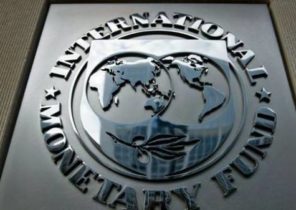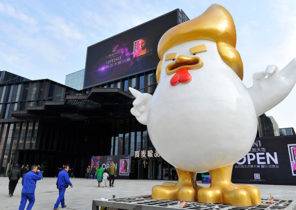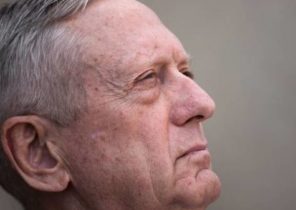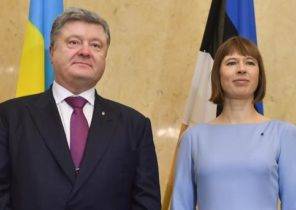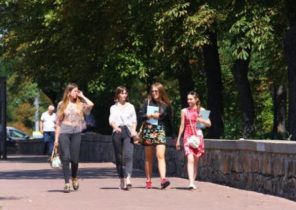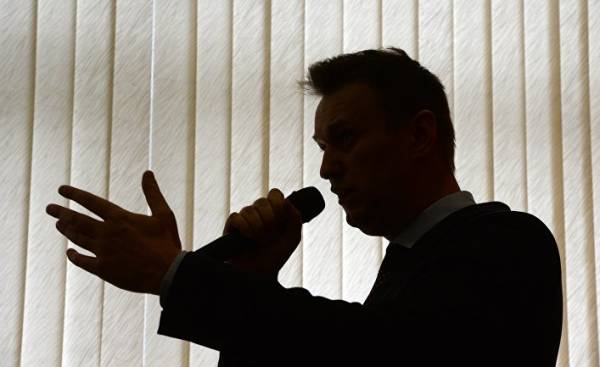
Forty-year-old Alexei Navalny, who announced that he will run for President of the Russian Federation as an independent candidate, conditionally sentenced to five years imprisonment for theft, not rent. This Russian politician, known for his investigations into corruption among Russia’s ruling elite, has again attracted attention. The investigation of corruption in Russia, which he posted on YouTube, has gained 8.8 million visits.
This is a real record, achieved in less than two weeks after the lawyer and opposition politician has published the results of the investigation, the object of which this time was the head of the government Dmitry Medvedev, a confidant of President Vladimir Putin. Medvedev, who from 2008 to 2012, Putin has replaced on a post of the head of state, is currently the Chairman of the party “United Russia”, which has an absolute majority of seats in the State Duma.
Navalny, who is going to fight for the presidency in the elections of 2018, accused the Prime Minister that he is the beneficiary of a whole Empire a huge and luxury villas, located in different places (in Moscow, Kursk and Ivanovo regions, in the Caucasus mountains and the black sea coast).
To these mansions should be added to the total of more than 100 hectares of land, agricultural farms and vineyards, as well as property in Italy (the estate, vineyards and winery in the Tuscan) and two luxury yachts.
According to Navalny, this Empire exists thanks to a network of funds managed to a narrow range close to Medvedev. These organizations theoretically charity — was listed as at least 70 billion rubles in cash and property.
As stated by the Bulk, in the murky operation involved a number of oligarchs (who made suspicious donations), administration of the President (presumably, she sold the land at a price 200 times lower than the market), state-owned banks (unclear financed operation) and the Minister of agriculture Alexander Tkachev, a former Governor of the Krasnodar region, where some real estate and property specified in the report.
Led by Navalny Fund of struggle against corruption (FBK) in the past highlighted the alleged corruption and ostentation of the number of high-ranking officials, including the head of Russian Railways Vladimir Yakunin, later relieved of the post, as well as the business of the sons of the Prosecutor General Yuri Chaika, whom he accuses of enriching thanks to the complicity of subordinates to their father. The opposition politician says that the report on the Gull family posted on social networks, read five million people.
The disturbance caused in YouTube investigation against Medvedev, looks sharp contrast to the indifference of the official Russian media have ignored the charges against the Prime Minister. Medvedev’s press Secretary Natalya Timakova said that the investigation into Navalny has “a clear electoral purpose” and “makes no sense” comment “propaganda attacks the convicted opposition leader, who said that he leads the campaign and is struggling with the authorities”.
Navalny said that he will run for President of the Russian Federation as an independent candidate. However, the election campaign has not started yet, and it is unclear whether the opposition to participate in elections, being on probation for five years (for theft when dealing with a forest in Kirov region). In accordance with Russian law, convicted and sentenced person cannot run for election, but the fact that Navalny received a suspended sentence and is not in custody, creates some uncertainty, which is considered in political circles, will enable the authorities to act according to his own, when the moment comes, that is, to allow or not allow to participate in elections. As it was told in the Kremlin, for Putin, whose participation in elections is expected, though not announced, it is very important to once again win with a large margin in votes. In addition, it is very important that the elections were credible, and for this purpose Putin needs a candidate that he can easily win, but they should be seen as a serious challenge for him personally.
According to political scientist Gleb Pavlovsky, in addition to Navalny, the Russian presidency could claim from 10 to 20 good candidates, including governors and senior officials, and “half of them” could beat the current President in the course of fair elections.
The problem of elections in 2018 is to comply with rules, since, under the Constitution, the same candidate can run for President more than two consecutive terms. Thus, the elections of 2018 will probably be the last that will involved Putin, who is 64 years old. Given that the presidential term is six years again to stand as a candidate, Putin would need at least to wait until 2029, when completed stay in power, who will replace it in 2023. In Pavlovsky’s opinion, this circumstance, paradoxically, marks the end of the Putin era and leads the case to the fact that the main intrigue of 2018 will be the balance of coalitions, the participants of which came to power thanks to the current President and wish to maintain their influence and authority in Syria.
Navalny knows how to use social networking sites to establish contact with Russian society. If you believe the opinion polls, the number of Russians who do not know Bulk still exceeds those who know him. According to a survey by the Levada Center in February 2017, 53% of the population did not know who Navalny, and 47% knew. In April 2011, this ratio was, respectively, 93% y 6%. Only in September-October 2013, when the opposition took the second place on elections of the mayor of Moscow, the number of those who knew him, exceeded the number of those who did not know him. From those who know him, 10% is considering to give him their vote, while 83% did not intend to vote for him.
As for corruption, this phenomenon is in fifth place (28%) in the list of concerns of the Russians, based on the results of a survey conducted by the Levada Center in February this year. In the first place in the list of concerns is the rising prices (69%), after its depletion (50%), unemployment (42%) and economic crisis (34%). Corruption in the ruling circles is not surprising the Russians, the sociologist Denis Volkov. Citing a survey conducted in February 2016, he argues that a quarter of Russians believe that their leaders are corrupt “from head to toe.” The sociologist adds that this does not affect the assessment of the Russians of their leaders, with corruption which they are willing to accept, if that will work.

